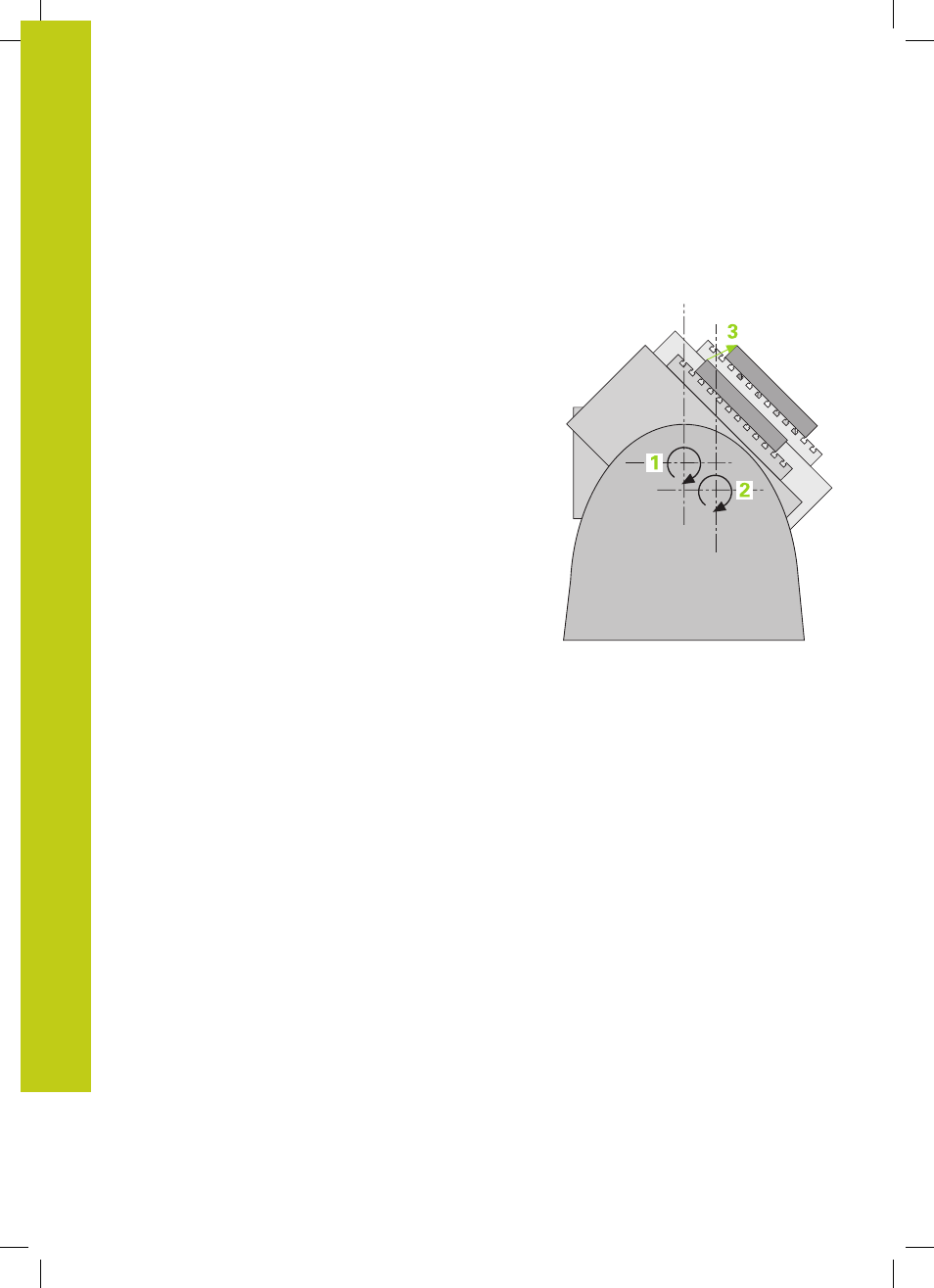Fundamentals – HEIDENHAIN TNC 640 (34059x-05) Cycle programming User Manual
Page 580

Touch Probe Cycles: Automatic Kinematics Measurement
18.1
Kinematics Measurement with TS Touch Probes (KinematicsOpt
option)
18
580
TNC 640 | User's Manual Cycle Programming | 1/2015
18.1
Kinematics Measurement with TS
Touch Probes (KinematicsOpt option)
Fundamentals
Accuracy requirements are becoming increasingly stringent,
particularly in the area of 5-axis machining. Complex parts need to
be manufactured with precision and reproducible accuracy even
over long periods.
Some of the reasons for inaccuracy in multi-axis machining are
deviations between the kinematic model saved in the control
(see
1
in the figure at right), and the kinematic conditions actually
existing on the machine (see
2
in the figure at right). When the
rotary axes are positioned, these deviations cause inaccuracy of
the workpiece (see
3
in the figure at right). It is therefore necessary
for the model to approach reality as closely as possible.
The TNC function
KinematicsOpt
is an important component
that helps you to really fulfill these complex requirements: a 3-D
touch probe cycle measures the rotary axes on your machine fully
automatically, regardless of whether they are in the form of tables
or spindle heads. A calibration sphere is fixed at any position on
the machine table, and measured with a resolution that you define.
During cycle definition you simply define for each rotary axis the
area that you want to measure.
From the measured values, the TNC calculates the static tilting
accuracy. The software minimizes the positioning error arising
from the tilting movements and, at the end of the measurement
process, automatically saves the machine geometry in the
respective machine constants of the kinematic table.
